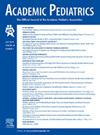Caregiver and Provider Perceptions of Health Disparities in the Neonatal Intensive Care Unit: A Qualitative Study
IF 3
3区 医学
Q1 PEDIATRICS
引用次数: 0
Abstract
Objectives
1) To describe the experience of caregivers and their perceptions of disparate care in the neonatal intensive care unit (NICU) and 2) explore interprofessional NICU provider perspectives on potential biases and perceptions of disparate care.
Methods
This qualitative study was conducted in 1 southeastern level IV NICU. Semistructured interviews assessed caregiver and provider perspectives on NICU care. Purposive sampling ensured ≥50% of caregivers self-identified as racial and/or ethnic minorities. Interviews were recorded, transcribed verbatim, and audio verified. A coding scheme was developed, raw data were systematically coded, and emerging themes were identified using thematic analyses.
Results
Twenty-three caregivers and 14 providers were interviewed, including 5 neonatologists, 6 nurses, and 3 residents. Caregivers were predominantly English-speaking (85%); 96% were mothers with a mean age of 32 years. Neonates were predominantly racial and ethnic minorities (62%). Providers were predominantly White (71%) and female (71%). Five themes emerged 1) ineffective, biased communication between caregivers, providers, and health care team may contribute to disparities; 2) language barriers and lack of interpreter access play a significant role in perceived negative care; 3) lack of caregiver involvement and role in decision-making may negatively influence NICU outcomes, especially for those not able to be present at the bedside; and 4) multiple biases may affect neonatal health disparities.
Conclusions
Our study highlights the importance of considering both provider and racial and/or ethnic minority caregiver perceptions disparities in NICU care delivery. It adds to the literature as one of the few qualitative studies comparing perceptions of disparate NICU care among both caregivers and providers.
护理人员和医护人员对新生儿重症监护室健康差异的看法:定性研究。
目标:描述护理人员的经历及其对新生儿重症监护病房差异化护理的看法;(2) 探讨新生儿重症监护病房跨专业医护人员对潜在偏见和差异化护理看法的看法:这项定性研究在东南部一家四级新生儿重症监护病房进行。半结构式访谈评估了护理人员和医疗服务提供者对新生儿重症监护病房护理的看法。有目的的抽样确保≥50%的护理人员自我认同为少数种族和/或少数族裔。对访谈进行了录音、逐字记录和音频验证。结果:23 名护理人员和 14 名医疗服务提供者接受了访谈,其中包括 5 名新生儿科医生、6 名护士和 3 名住院医师。护理人员主要讲英语(85%);96%为母亲,平均年龄为 32 岁。新生儿主要是少数民族(62%)。护理人员主要为白人(71%)和女性(71%)。研究提出了五个主题:(1)护理人员、医疗服务提供者和医疗团队之间无效的、有偏见的沟通可能会导致差异的产生;(2)语言障碍和缺乏口译人员在感知负面护理方面起着重要作用;(3)缺乏护理人员的参与和在决策中的作用可能会对新生儿重症监护室的结果产生负面影响,尤其是那些不能在床边的护理人员;以及(4)多种偏见可能会影响新生儿的健康差异:我们的研究强调了在新生儿重症监护室提供护理服务时同时考虑提供者和种族及/或少数民族护理人员认知差异的重要性。作为为数不多的比较护理人员和医疗服务提供者对新生儿重症监护室护理差异的看法的定性研究之一,本研究为相关文献增添了新的内容。
本文章由计算机程序翻译,如有差异,请以英文原文为准。
求助全文
约1分钟内获得全文
求助全文
来源期刊

Academic Pediatrics
PEDIATRICS-
CiteScore
4.60
自引率
12.90%
发文量
300
审稿时长
60 days
期刊介绍:
Academic Pediatrics, the official journal of the Academic Pediatric Association, is a peer-reviewed publication whose purpose is to strengthen the research and educational base of academic general pediatrics. The journal provides leadership in pediatric education, research, patient care and advocacy. Content areas include pediatric education, emergency medicine, injury, abuse, behavioral pediatrics, holistic medicine, child health services and health policy,and the environment. The journal provides an active forum for the presentation of pediatric educational research in diverse settings, involving medical students, residents, fellows, and practicing professionals. The journal also emphasizes important research relating to the quality of child health care, health care policy, and the organization of child health services. It also includes systematic reviews of primary care interventions and important methodologic papers to aid research in child health and education.
 求助内容:
求助内容: 应助结果提醒方式:
应助结果提醒方式:


